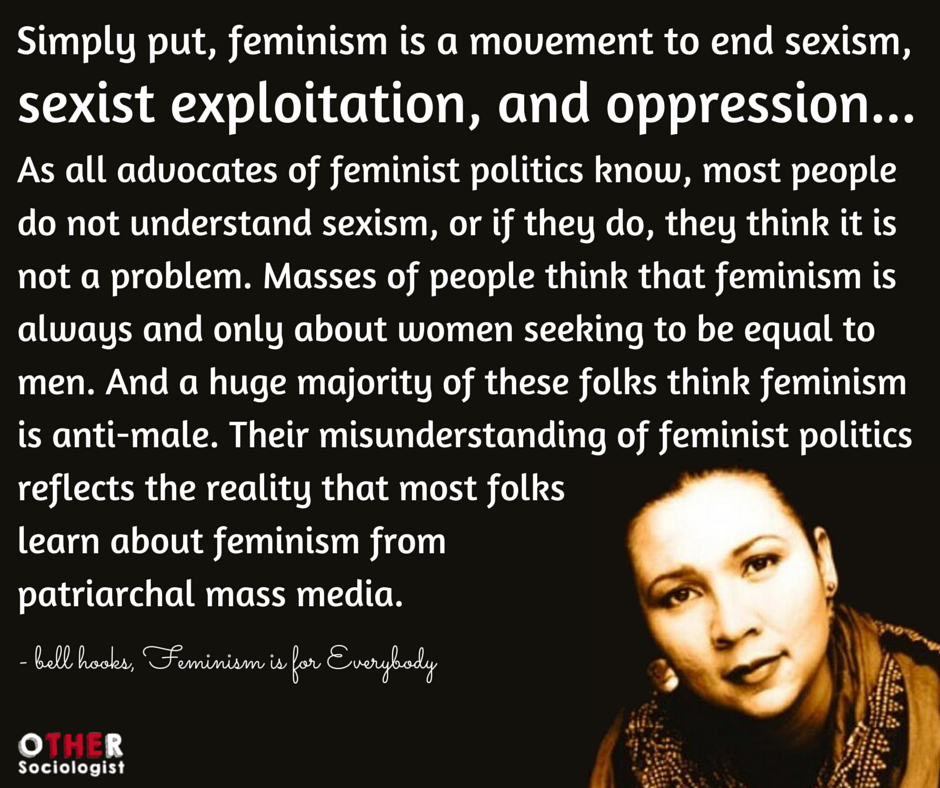

Not many people remember that in fact, it deals with the fight for equal rights. Popular feminism is about women who desire to be like men. Yet in so many cases in heterosexual families men did not respond to care: instead they were tyrants who used their power unjustly to coerce and control.There are plenty of stereotypes concerning feminism. Within patriarchy heterosexist bonds were formed on the basis that women being the gender in touch with caring emotions would give men love, and in return men, being in touch with power and aggression, would provide and protect. “Love in patriarchal culture was linked to notions of possession, to paradigms of domination and submission wherein it was assumed one person would give love and another receive it. Understanding feminism is essential, and our lives as human beings depend on learning to practice it better: Regardless, hooks argues that feminism is essential in all relationships whether or not you have a degree and can understand the jargon or not. bell hooks attributes some of the fall out from feminism in having to do with the fact that after the 70’s feminism was taken out of the streets and held exclusively by the privileged few in academia. While the effort to combat racism within oneself is becoming more commonplace in today’s society, addressing sexism within oneself is not as prominent. The threat, the enemy, is sexist thought and behavior.” The enemy within must be transformed before we can confront the enemy outside. It remains the necessary step for anyone choosing feminist politics.

“Significantly, the most powerful intervention made by consciousness-raising groups was the demand that all females confront their internalized sexism, their allegiance to patriarchal thinking and action, and their commitment to feminist conversion. In Feminism is for Everyone, hooks breaks down basic feminist theory, and how it has changed over time. hooks chooses not the capitalize her name so that people focus on her words and ideas, not herself personally. Bell hooks writes about passionate politicsīell hooks is an American academic and writer born in 1952 whose work focuses on the intersectionality of race, capitalism and gender.


 0 kommentar(er)
0 kommentar(er)
